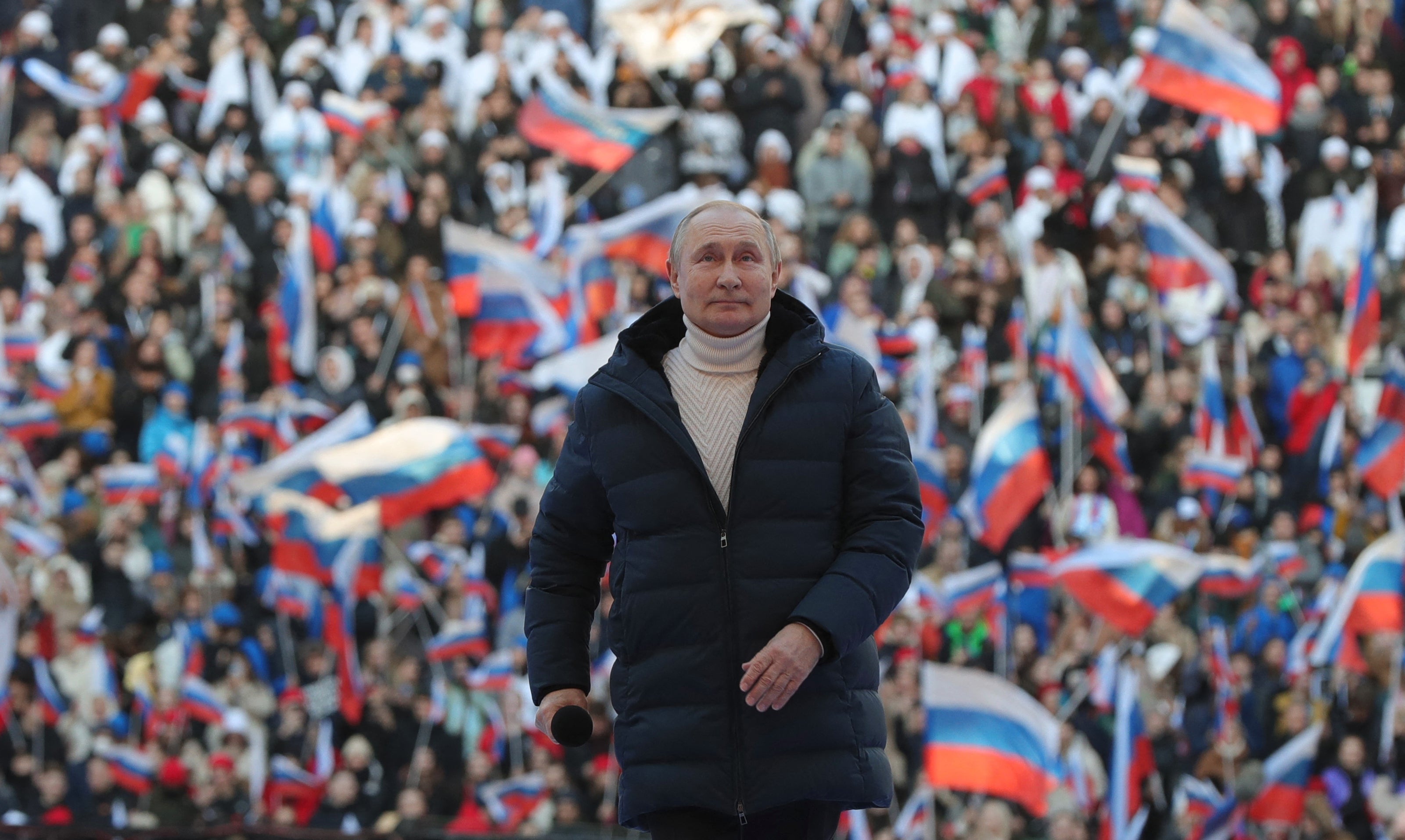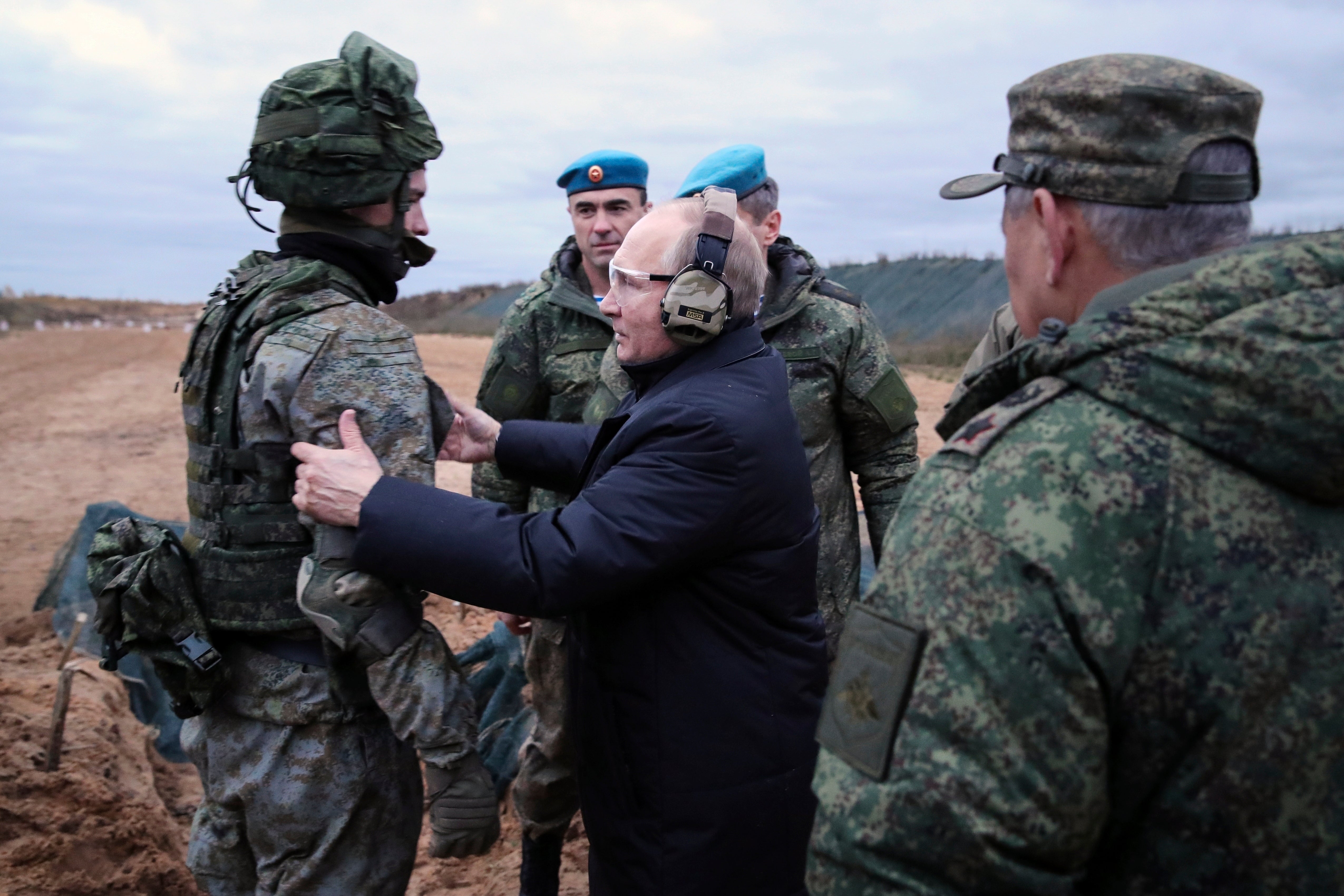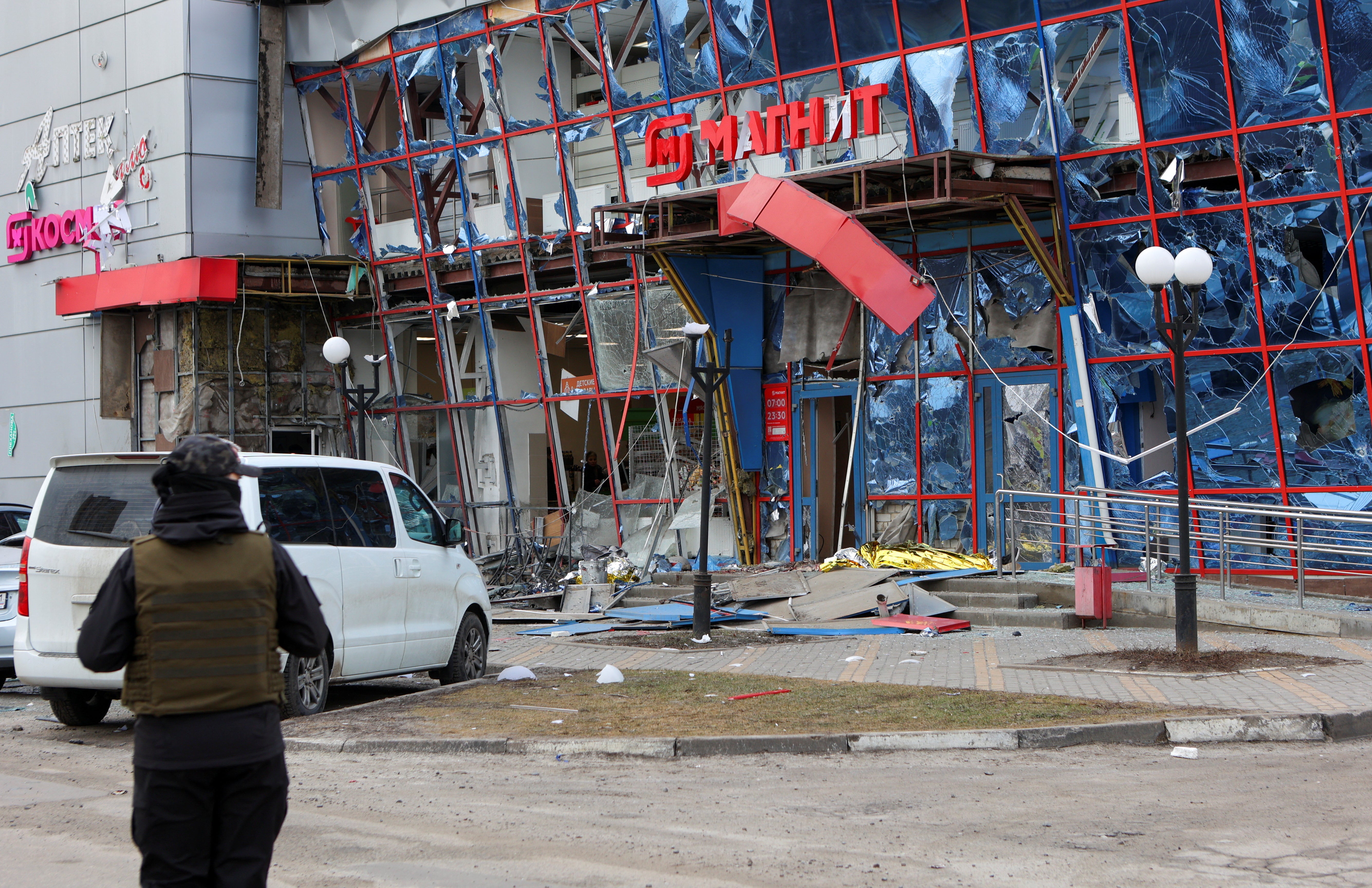An endless war and a harsher crackdown on dissent? What can Russia expect after Putin’s bogus ballot
Vladimir Putin is widely expected to win sham Russian elections this weekend, securing his fifth term in office

Your support helps us to tell the story
From reproductive rights to climate change to Big Tech, The Independent is on the ground when the story is developing. Whether it's investigating the financials of Elon Musk's pro-Trump PAC or producing our latest documentary, 'The A Word', which shines a light on the American women fighting for reproductive rights, we know how important it is to parse out the facts from the messaging.
At such a critical moment in US history, we need reporters on the ground. Your donation allows us to keep sending journalists to speak to both sides of the story.
The Independent is trusted by Americans across the entire political spectrum. And unlike many other quality news outlets, we choose not to lock Americans out of our reporting and analysis with paywalls. We believe quality journalism should be available to everyone, paid for by those who can afford it.
Your support makes all the difference.As millions of Russians and residents of occupied Ukraine head to the ballots this weekend to vote in rigged presidential elections, Vladimir Putin is ready to further shift the country onto a war footing.
He has already been in power for 24 years, having ruled as prime minister but de facto leader from 2008 to 2012. After changing the constitution in 2020 to allow him to run again, he will surely rule for another six years, eventually eclipsing Joseph Stalin in 2029 as the longest-reigning ruler in Russian history.
Consolidating power and quashing dissent has characterised his nearly quarter of a century in power; a new form of much of the same is likely to define his fifth term in charge, this time centred on prolonging his war in Ukraine.
“The election means more war, no peace,” says John Foreman, a former UK defence attache to Moscow.

Russia is now devoting an estimated 7.5 per cent of its GDP to military spending, the highest since the Cold War.
Some weapons factories are operating on a rotating 12-hour shift pattern to keep production running 24 hours a day, according to videos shared by the Russian defence ministry. Swathes of the non-fighting population, meanwhile, have been employed to manufacture equipment for the war effort, while engineers have been asked to revamp old Soviet-era tanks for use in Ukraine.
In the short term, this has had positive effects on Russia’s economy; the International Monetary Fund (IMF) estimates that the country will have greater growth than all the G7 nations this year.
But it has inextricably tied Russian society to the war effort, say economists. The success of the so-called “special military operation”, the Kremlin’s propagandistic phrase for the invasion of Ukraine, is now the basis of Russian prosperity.
And what was originally sold as something happening far away, in Ukraine but not actually in Russia, is no longer true.
In the Russian Belgorod region, where cross-border raids from Ukraine have become part of daily life, the governor Vyacheslav Gladkov reported the deaths of a man and a woman on Saturday. Schools in the area have been closed until Wednesday to reflect the dangerous “current situation”, Mr Gladkov said. It was the third attack this week.

In the Samara region, 530 miles southeast of Moscow and hundreds of miles from Ukraine, the Syzran oil refinery was on fire after what was allegedly a Kyiv drone attack. It is the latest in many long-range attacks over the past two years.
The Russian foreign ministry has accused Ukraine of stepping up “terrorist activities” during the elections to attract more aid and weapons from the West.
Whatever they think, these attacks, say Ukraine, will only grow in intensity. Kyrylo Budanov, Ukraine’s military intelligence chief, says a major operation is also being prepared for the occupied Crimean peninsula.
The Kremlin, meanwhile, will continue to crack down on those that dare to speak out against Mr Putin’s war, even as it begins to slip across the border.
Roughly 20,000 Russians have been arrested since February 2022 for opposing the war, according to human rights group OVD-Info. Nearly a thousand have been jailed, some for more than a decade. Hundreds of thousands have been exiled. That trend shows no signs of abating.
“There is not much left to restrict. The system of repression has been built brick by brick for more than two decades,” says Oleg Kozlovsky, a Russia researcher for Amnesty International. “But I am certain they will come up with some new laws, some new restrictions. There will be some new fines. They will increase prison terms.”
“They are looking to completely freeze Russian civil society’s ability to protest.”
Footage last month showed Russian authorities dragging away those that dared to lay flowers in memory of opposition figure Alexei Navalny, for example, who died in an Arctic Circle penal colony where he was serving a lengthy sentence on trumped-up charges of extremism. His allies say he was killed by the Kremlin.
The truth of what happened to Mr Navalny may be lost but what is evident is that even memorialising him has become unacceptable. Any semblance of speaking out against the war in Ukraine has become a cardinal sin.
With all obstacles to his war in Ukraine being removed, Mr Putin will now look to test the West’s resolve to continue supporting Ukraine until the end.
Vital weapons packages from the US and the European Union are currently being blocked by Donald Trump-supporting Republicans and a Hungarian leader sympathetic to Russia.
US presidential elections in November, meanwhile, could spell further disaster for Ukraine if Mr Trump, feared also to be sympathetic to Russia and known to be sceptical of Nato, returns to office.
“Putin thinks he is winning,” says Mr Foreman, the former defence attache. “He thinks the West is weak, and that he is safe at home.”
How the war in Ukraine may end is impossible to predict, but what is clear is that Putin’s Russia is now intimately tied to the outcome.
Join our commenting forum
Join thought-provoking conversations, follow other Independent readers and see their replies
Comments